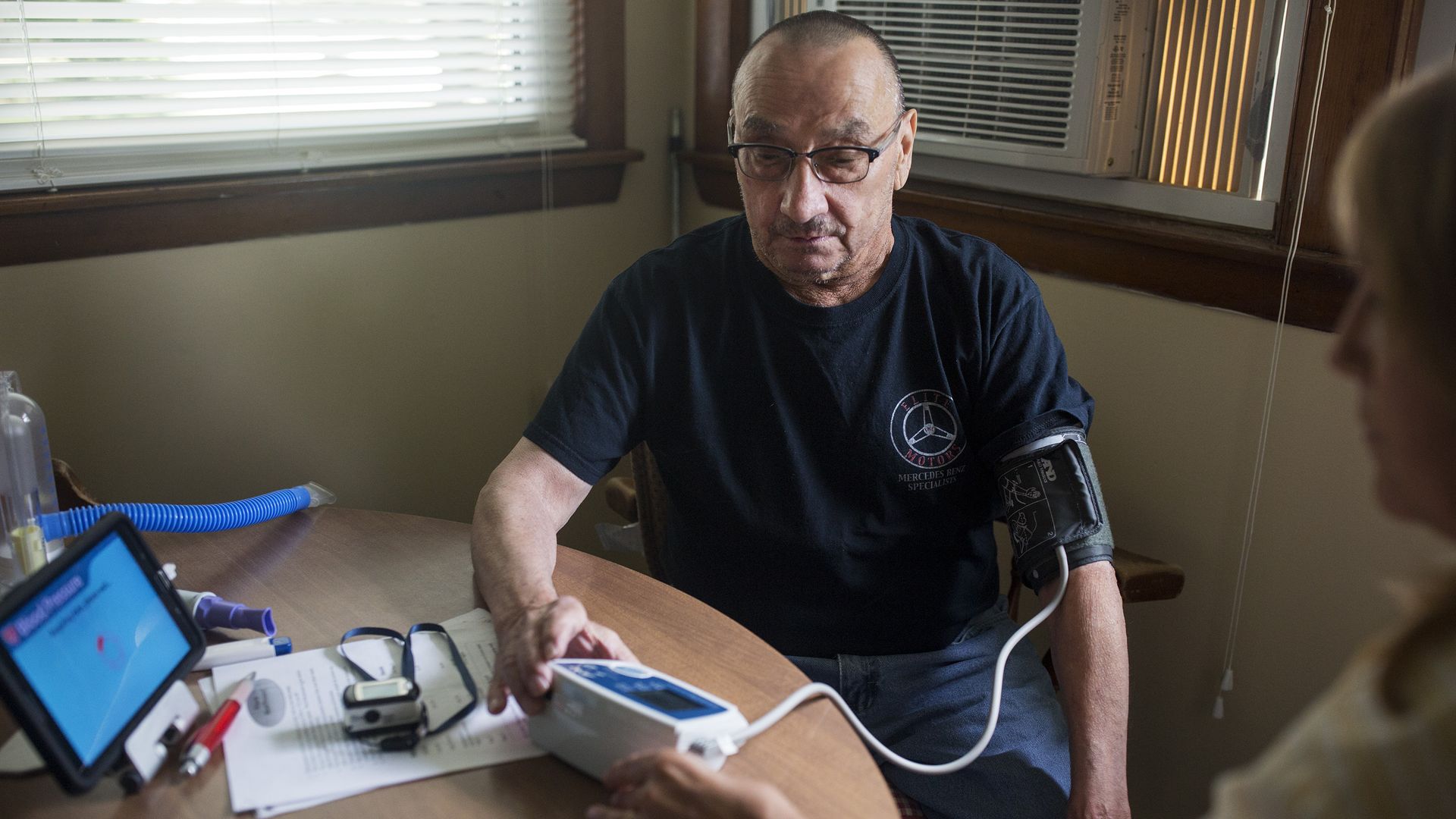Oct 8, 2019
Telemedicine has enabled new forms of Medicaid fraud
Add Axios as your preferred source to
see more of our stories on Google.

A man measures his vitals and sends the data electronically to nurses. Photo: Brianna Soukup/Portland Portland Press Herald/Getty Images
